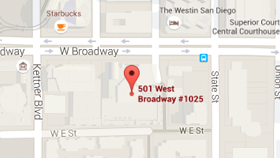Bankruptcy Newsletter
Keeping a Personal Residence During Bankruptcy Under The Homestead Exemption
Upon filing for bankruptcy under either Chapter 7 or Chapter 13, a debtor can face the risk of losing some or all of his personal and real property assets to satisfy the claims of unsecured creditors. However, many states provide what is known as “the homestead exemption,” which can shield a debtor’s personal residence from being repossessed and/or sold for the benefit of creditors.
The Unlimited Homestead Exemption
A few states offer an unlimited homestead exemption, or an exemption with no dollar cap. This means that unsecured creditors in states that provide an unlimited homestead exemption cannot seek payment from a debtor’s personal residence at all, no matter what the value of the property is.
The states that provide an unlimited dollar value homestead exemption are:
- Florida
- Texas
- Kansas
- Iowa
- South Dakota
However, these states do limit the exemption to some extent, based on the acreage of the land in question. For example, in Texas, unsecured creditors cannot seek payment from a debtor’s personal residence if the homestead is not more than one acre in a city or 200 acres elsewhere. Likewise, in Florida, the exemption is limited to half an acre in a city or 160 acres elsewhere.
On the other extreme, states which do not provide a homestead exemption include: Delaware, Maryland, New Jersey and Pennsylvania.
Homestead Exemptions With a Dollar Limit
Most states offer homestead exemptions with a dollar limit, which vary by state. In these states, a debtor will only be required to pay his creditors/trustees the difference between the value of his equity in the home and the dollar limit of the exemption. Equity is the fair market value of a home, less the amount of any mortgages. For example, if the fair market value of a home is $200,000 and there is a $60,000 mortgage, the equity is $140,000.
Applying the limited homestead exemption of North Dakota, which is set at $80,000, a debtor with $140,000 of equity in his home could only be called upon to pay $60,000, or the difference between $140,000 (equity) and $80,000 (homestead exemption).
Limitations Under the 2005 Federal Bankruptcy Abuse Prevention and Consumer Protection Act
In 2005, Congress passed the Bankruptcy Abuse Prevention and Consumer Protection Act (BAPCPA). The BAPCPA set limits on the amount a homeowner can exempt under the homestead provisions. If the debtor opts for the state exemption, he cannot exempt any interest in the homestead that was acquired 1,215 days prior to the filing of the bankruptcy petition that is also above the $136,875 aggregate provided by Section 522(q)(1). Furthermore, the debtor will be required to choose the state exemption of the state in which he has resided during the 730 days prior to filing the petition. If the debtor has not resided in a single state during that 730 days, he must choose the state in which he resided the longest during the 180 days prior to that 730 day period or the state. If neither rule above provides the debtor with a state exemption, he must use the federal exemption.
The Federal Bankruptcy Homestead Exemption
A debtor contemplating bankruptcy in a state that offers a limited homestead exemption should consider using the federal bankruptcy homestead exemption instead, if state law permits. The federal bankruptcy homestead exemption is $18,450. Where a state’s homestead exemption is lower than the federal amount (as in Ohio, where the exemption is $5,000), a debtor might be better off using the federal exemption.
© 2024 NextClient.com, Inc. All rights reserved.



